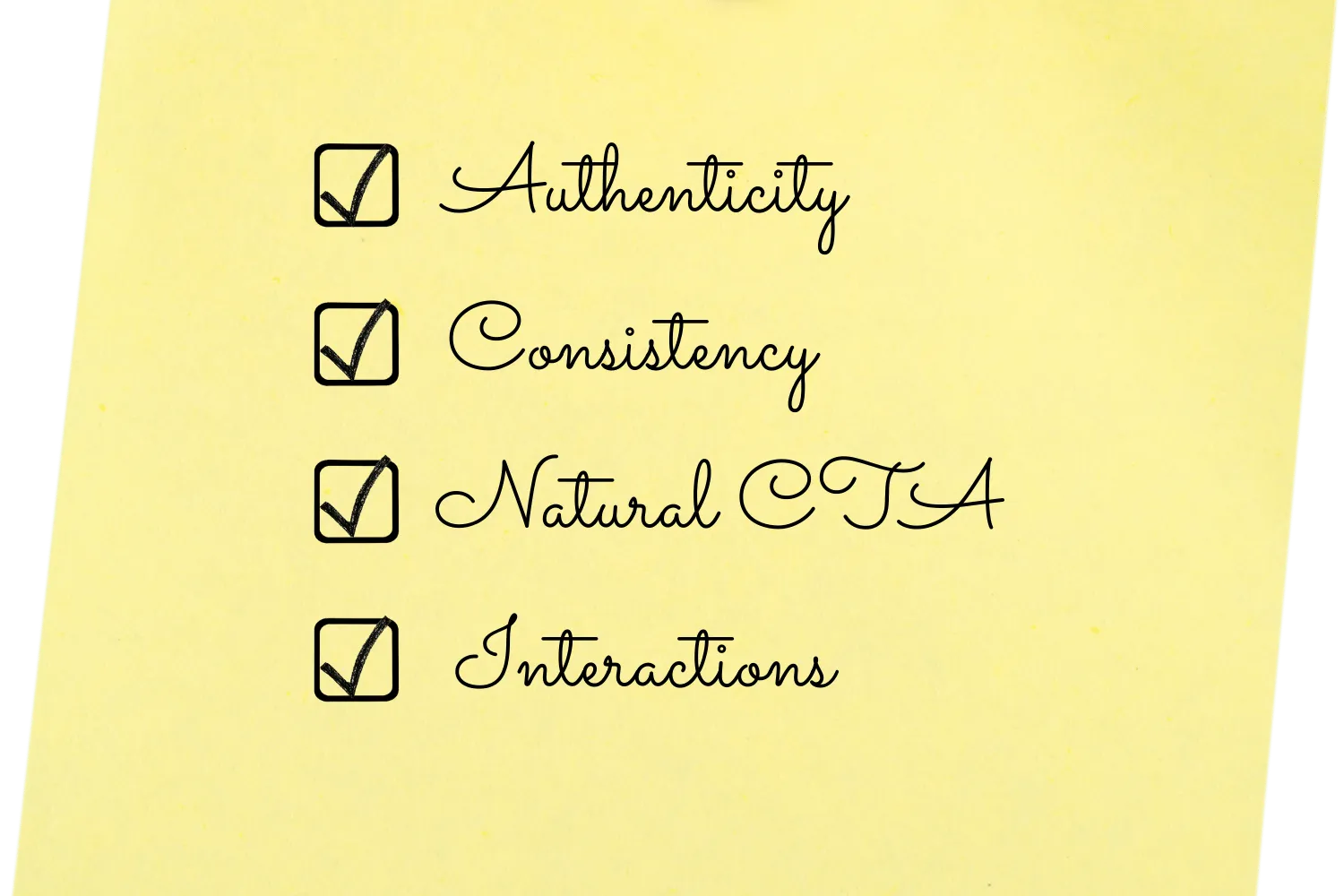A solid marketing strategy is essential for therapists seeking to grow and maintain their practices. But with so many options available, how do you discern the best approach? And how do you ensure that you’re using your time, money, and resources wisely?
Regardless of your personal opinions about social media, overlooking its professional relevance could be an immense mistake. That said, it’s important to also consider your ethical guidelines
Start With One Platform
In business, there’s a well-known phrase, ‘mile wide inch deep,’ which refers to the effort to focus on a large strategy without any refining or niching. When it comes to social media, this looks like therapists trying to attract clients in every way possible - without any real intention behind their efforts.
Instead of thinking about how you can dominate all the social media channels simultaneously, consider focusing your efforts on really building one audience at a time. It’s generally best to start with a platform that feels most aligned with you and your professional values.
For example, if you prefer thought-provoking written content over reels, your marketing efforts are likely better suited on LinkedIn or Threads instead of TikTok. Over time, you can certainly pivot, but it’s much better to have a loyal audience (even if it’s smaller) than several scattered audiences.
Make Content Intended for Your Ideal Clients
Who are your ideal clients? What content do they typically engage with? What online marketing works for them? What social media platforms are they already using and enjoying? These are the questions worth asking yourself as you strategize potential content.
Many therapists make the mistake of creating generic content that doesn’t really speak to anyone in particular. Because social media is already quite saturated, you won’t stand out with this approach. Instead, you want to target specific demographics when using social media.
For example, if you want to spread awareness about certain mental health topics, those topics should be unquestionably relevant to the types of potential clients you hope to attract. For example, if you specialize in perinatal mental health, content should focus on anything a new or expecting parent might face. Similarly, if you hope to work with teenagers, don’t make content generated for people in midlife!
Consider these guidelines:

Stay authentic: Past, current, and future clients may be looking at anything you post, so you must keep this in mind throughout your social media efforts. As a general rule of thumb, if it’s not something you would say in a session, it might not be something worth posting online.
Stay consistent: You don’t need to post every day, but you do want to have a consistent content schedule. There’s no specific number to keep in mind, but it may help to maintain a content calendar to keep yourself on track. There are many social media management software options that can help you with this. Ultimately, you don’t want to run into repeated scenarios where you’re scrambling with the frustrating question, What should I post today?
Make your call-to-action natural: Your page shouldn’t read like one big advertisement. This will never land you more clients. Instead, try to thoughtfully advertise your therapy services without repeating yourself excessively.
Encourage conversation and interaction: Get active in the comments sections and try to build a relationship with your audience. This is a great way to show off your personality and also network with other like-minded individuals.
Use Social Media to Leverage Other Marketing Efforts
When used intentionally, creating content for social media augments other social media-adjacent marketing approaches and vice versa. This, in turn, can help build your reputation and expose you to more clients.
For example, consider this: let’s say you’re building a reputation for your niche services within your local area. You’re doing excellent work, and other mental health professionals are referring potential clients to you.
So, what’s the first thing a new client might do before calling you? They’ll probably look you up! Good word-of-mouth coupled with a solid social media presence can certainly go a long way, and it can validate your reputation.
With that, social media is only half the equation. Let’s say you have an amazing Instagram presence but your practice website looks shabby and messy. Your target audience may love your content, but they might hesitate to actually hire you as their therapist.
Therefore, it all connects. Whatever marketing strategy you do needs to complement other marketing strategies.
Mind Your Ethical Guidelines on Social Media Platforms
Of course, laws and ethics need to be integrated when making social media posts. Some of these rules are explicit based on your state board, but others may be more blurry. In general, it’s important to consider the following guidelines:
- Your presence is public: If you keep your profiles public, anyone can see what you post, share, or interact with. Be mindful of how others may perceive any of your interactions. You carry a sense of digital permanence- even if you delete a post- so this should also be considered as you consider your content.
- Always maintain client confidentiality: Valuable content should never come at the expense of breaching someone’s trust or personal information. This is a legal consideration, and it must be respected. If a client even suspects that one of your posts might be about them, you may be sharing too much.
- Make disclaimers: Be transparent that social media is simply for informational and educational services, and that it is not a replacement for therapy services. Let potential clients know how to reach you (off-page) if they’d like to discuss working with you.
- Keep social media policies in place within your informed consent: Inform clients about how and why you use social media for your therapy practice and clarify that you will not engage with them in any form on any platform. List the alternative ways they can reach you if they need to communicate with you.
- Avoid friending/following: Do not engage with past or current clients on social media. While you can’t control if they follow a public page, you should not look at their content or acknowledge the scope of your relationship.
Getting Started for Beginners
Handling social media accounts can be time-consuming, especially if you don’t feel all that confident with your skills. Likewise, if you’re already managing your private practice, you may not have the bandwidth to create relevant and valuable content or engage with your audience.

The good news is that many free, automated tools can help, including:
- Canva: A user-friendly, intuitive platform for creating visuals, posts, and branding
- CapCut: A video editing app with both designs and templates for making videos
- Buffer: A scheduling tool where you can plan and publish your posts across all popular social media platforms
- Notion: allows you to collaborate and plan content with other team members, including virtual assistants or other clinicians in your practice
- Sprout Social: displays useful analytics to track audience engagement
Furthermore, it may also be beneficial to consider outsourcing some of your social media tasks. For instance,
Consider Outsourcing If Needed
Handling social media accounts can be time-consuming, especially if you don’t feel all that confident with your skills. Likewise, if you’re already managing your private practice, you may not have the bandwidth to create relevant and valuable content or engage with your audience.
If this is the case, outsourcing to a social media management team or virtual assistant can be extremely valuable in:
- clarifying your social media goals (growth, building meaningful connections with an audience, establishing more of a professional presence, attracting new clients)
- creating an effective social media strategy that aligns with your goals
- understanding and working within changing algorithms
- running routine analytics to assess what is and isn’t working
- managing other administrative logistics (SEO research, paid advertising, looking into relevant hashtags, sharing and following other professionals)
Final Thoughts on Social Media for Your Therapy Practice
The concept of marketing is constantly in motion. As a therapist, it’s important to be mindful of evolving with trends without getting entirely consumed by the “newest, shiniest thing.”
The Internet definitely isn’t going anywhere - with that, it’s certainly worth reflecting on your current practice’s social media marketing efforts to see what needs to be enhanced or revisited. But instead of viewing marketing as a dreadful task, consider reframing it as a powerful tool. When done effectively, your presence supports your professional network and exposes you to a wider audience of potential clients.



